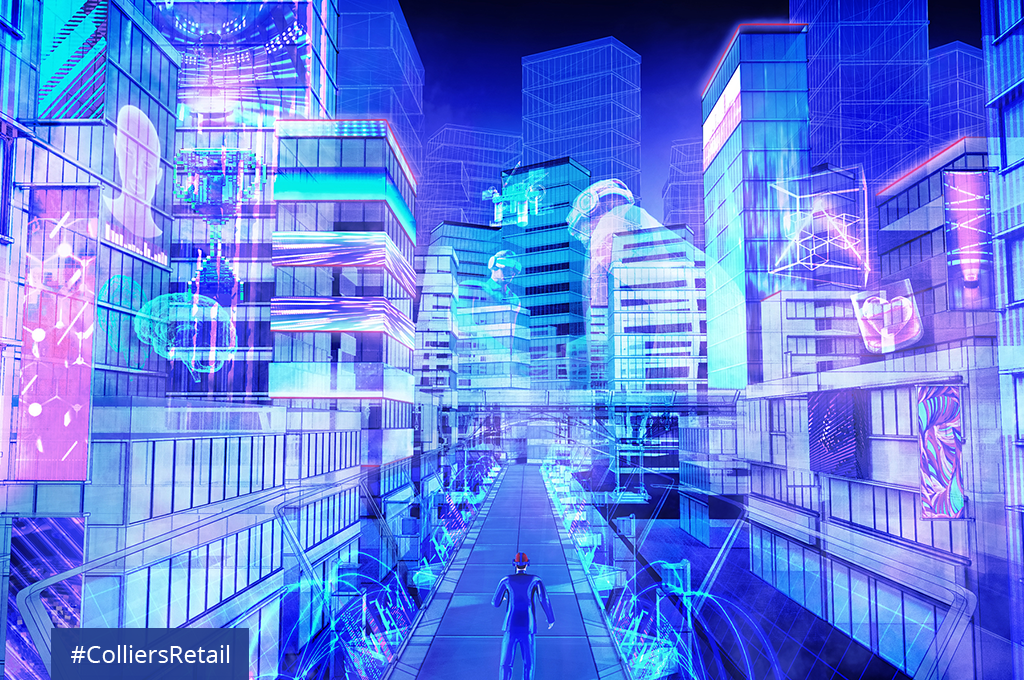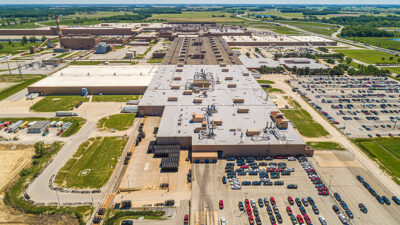What is the Metaverse?
The metaverse is an integrated network of 3D virtual worlds. The technologies that make up the metaverse include virtual reality and augmented reality, which combine aspects of the digital and physical worlds. Consumers are more receptive to using the metaverse as a place to experience, engage with or discover brands and products. This allows retail brands to effectively create community through personalized digital connections to market themselves in virtual worlds. The metaverse represents a potential $8 trillion to $13 trillion opportunity that could boast as many as 5 billion users by 2030.
Real Estate in the Metaverse
As the metaverse evolves into vivid reality, more individuals will be interested in becoming part of its social ecosystem and invested in the real estate market within these digital worlds. Metaverse real estate sales exceeded $500 million in 2021 and are expected to grow exponentially, projected to surpass $5 billion by 2026. The metaverse will gradually move towards a more mixed reality experience, giving more value to these platforms which visitors can inhabit. In addition, the popularity of cryptocurrencies will make digital property more approachable and easier to purchase.
Although the metaverse is still in its infancy, it will likely disrupt the real estate industry in the not-too-distant future. Property owners who embrace the virtual world will enjoy new revenue streams, while those who choose to ignore it could potentially see their real estate assets depreciate in value. The global billboard business is a billion-dollar industry. With augmented reality, any building in the world can become a canvas for media and host outdoor advertisements without being subject to permitting restrictions. As the metaverse merges with the real world, the ad industry will create an entirely new category of revenue for property owners.
Nearly one-third of retailers will have either launched or plan to unveil virtual storefronts within the metaverse over the next four years to boost sales outside the traditional brick-and-mortar. An expanding list of fashion names has been getting involved with metaverse platforms, including notable brands like Nike, Ralph Lauren, Louis Vuitton, Tommy Hilfiger, Balenciaga, Burberry, Gucci, Vans, Zara, and Forever 21. In addition, restaurant brands like Wendy’s, Chipotle, McDonald’s, and Panera Bread are also testing new experiences within the metaverse, giving them an early competitive advantage and a better understanding of the marketing potential of these virtual worlds.
While interest continues to grow, real estate in the metaverse will likely face a digital media rights management problem. Real-world property owners are at risk from tech and media companies who want to use their buildings to display augmented reality content without obtaining permission. As the metaverse continues to expand, this could bring potentially dangerous messaging for property owners.
Another significant challenge for industry growth is the uncertainty of real estate market prices on the metaverse. While the valuation of virtual lands depends on the property’s scarcity and location, virtual land prices do not follow the pricing pattern of the physical world. Instead, the value of digital assets, including metaverse real estate, largely depends on how the buyers perceive their price, which could lead to ambiguity.
If the metaverse does become the next iteration of the Internet, it will present opportunities and risks for all users. For retailers and brands, the metaverse will be an additional channel for selling but should not be the only channel. It will be just as important for brands to use multiple channels such as brick and mortar, ecommerce, and omnichannel to reach consumers and enhance the shopping experience.

 Nicole Larson
Nicole Larson

 Nancy Caniff
Nancy Caniff
 Aaron Jodka
Aaron Jodka
 Stephanie Rodriguez
Stephanie Rodriguez